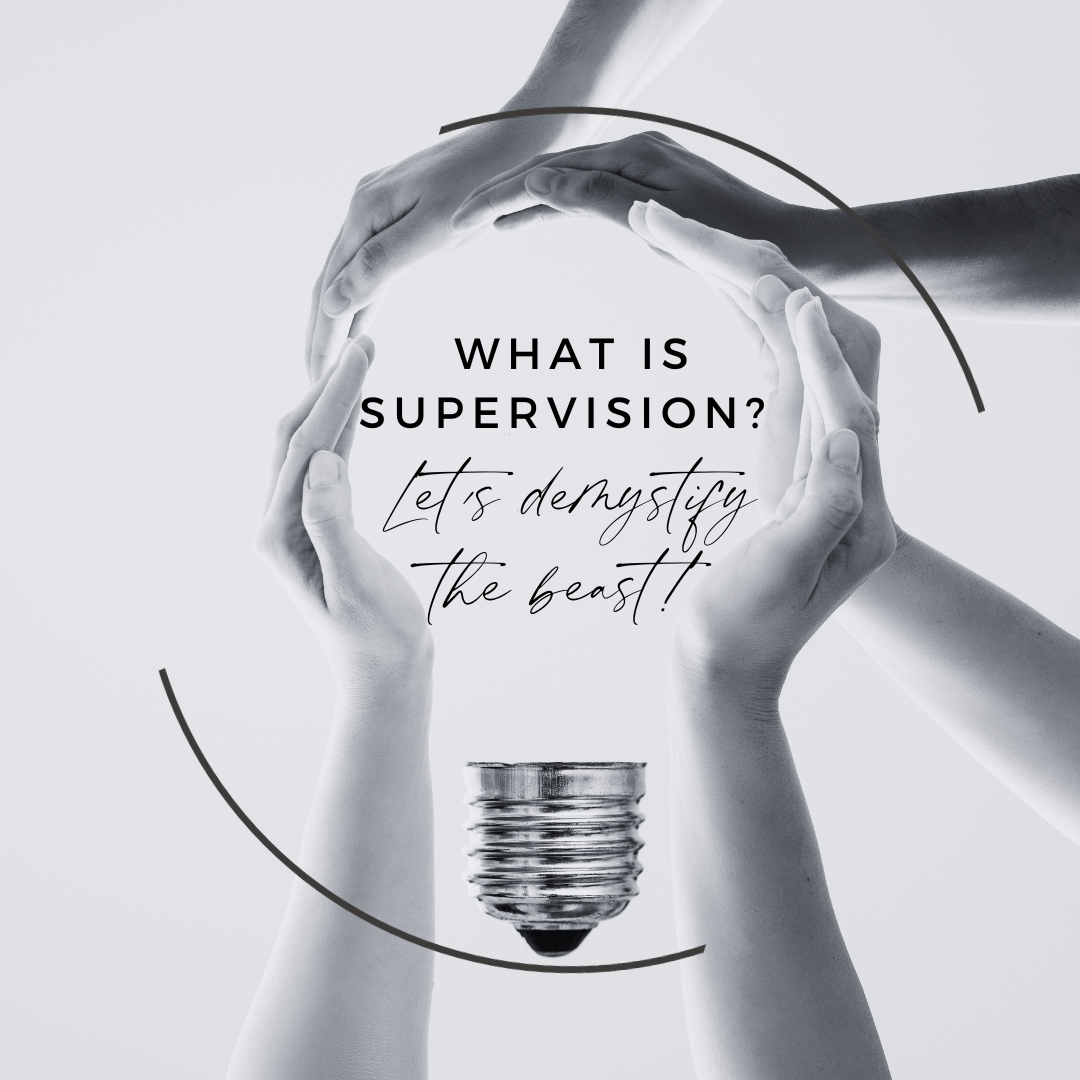What is supervision - let's demystify the beast!

What is supervision - let's demystify the beast!
There’s growing conversation about the concept of supervision in education, but despite being statutory since 2012, it’s still not embedded in the culture and practise of many schools and childcare settings, if fact it's not even happening everywhere. I've had many conversations with leaders and practitioners during this term and several have asked what I mean when I talk about supervision. Many Headteachers and Leaders in schools are unaware that supervision is a statutory requirement for all staff working with children in the Early Years (meaning birth to aged 5).
No judgement here, there is so much that leaders need to keep on top off, and the requirements which are 'statutory' just keep growing. But, if you've been interested to get this far, and explore supervision, then well done! Hopefully this short blog will help to define the concept of supervision in Education and Childcare for you.
Here’s a quick run down of some of the things supervision definitely isn’t, and some of the things I believe it should be.
Supervision in education and childcare isn’t:
Only for those who are ‘failing’
or
all about performance.
It’s not about being a ‘supervisor’ in the context of someone who checks up on others, to make sure their work is done to a specific standard. We have performance management in education and childcare which takes care of the performance element.
Supervision isn’t:
Only for those working with high level concerns
or
only for use after traumatic events.
We aren’t talking about clinical supervision which is used in the medical and social services world, although counselling and support led by professional psychotherapists and professional counsellors can be valid and needed for those working with children and young people. Supervision shouldn’t just be offered in settings where the cohort or catchment is deemed particularly challenging with high levels of safeguarding needs, or after events which have been traumatic. Supervision isn’t just for one offs.
And supervision really isn’t:
Just for staff working in the Early Years
A waste of time!
A tick box exercise.
It’s not something which you can rush just to tick it off your list of ‘things the framework says we’ve got to do even though we don’t understand it.’ And, if it feels like a waste of time you probably need to alter your implementation!
Supervision is statutory for all, yes ALL, staff working with children in the Early Years Framework. It is detailed in the Statutory Framework updated in July 2023: point 3.22: Providers must put appropriate arrangements in place for the supervision of staff who have contact with children and families.
Just to reiterate, there's no judgement here, if you are reading this and thinking 'crikey I didn't know that', and 'it's not happening in my school or setting' then don't panic. There's lots that can be done to get started and support staff well with successful supervision practises.
Ok, enough of the negative Nelly. If it’s not these things above, then what is it?
This working definition from Dr Rachel Briggs is pretty accurate I think:
‘Reflective supervision in education is a non-judgemental, collaborative process where education practitioners are supported to reflect on their values, practice, relationships, the emotional demands of their work and the impact of these and the wider education system on their psychological wellbeing. It can contribute to best practice, effective relationships, enhanced wellbeing, and professional and personal development.’
Great supervision should be:
Creating space and time to engage in reflection and unpacking.
Without judgement or pressure.
A tool to support well-being, and avoid the internalisation of worries
A process which develops self esteem, confidence and resilience, and increases success for staff and the children they serve.
The Early Years Framework, in the section about Learning and Development states:
‘A quality learning experience for children requires a quality workforce. A well qualified, skilled staff strongly increases the potential of any individual setting to deliver the best possible outcomes for children.'
I really believe that we can learn a huge amount from EYFS practise. If best practise for staff working with children in the Early Years is supervision, then there's scope to explore it's validity for all staff. Rightly so there is growing momentum for supervision to be used throughout schools and childcare settings. Supervision is an incredible tool to create and sustain that quality workforce. Leaders and their staff need to be confident, resilient, mentally well, and able to reflect on practise in order to be skilled at what they do.
What do you think? I’d love to know your thoughts on and experience of supervision. And if this blog has given you a thirst to get it working better, or get it started in your setting or organisation get in touch and I can help you along the way.
~ Emma ~